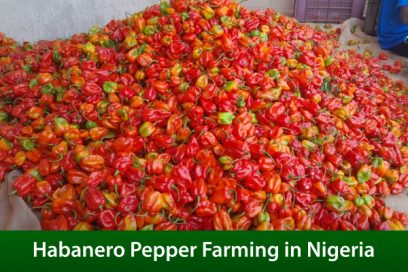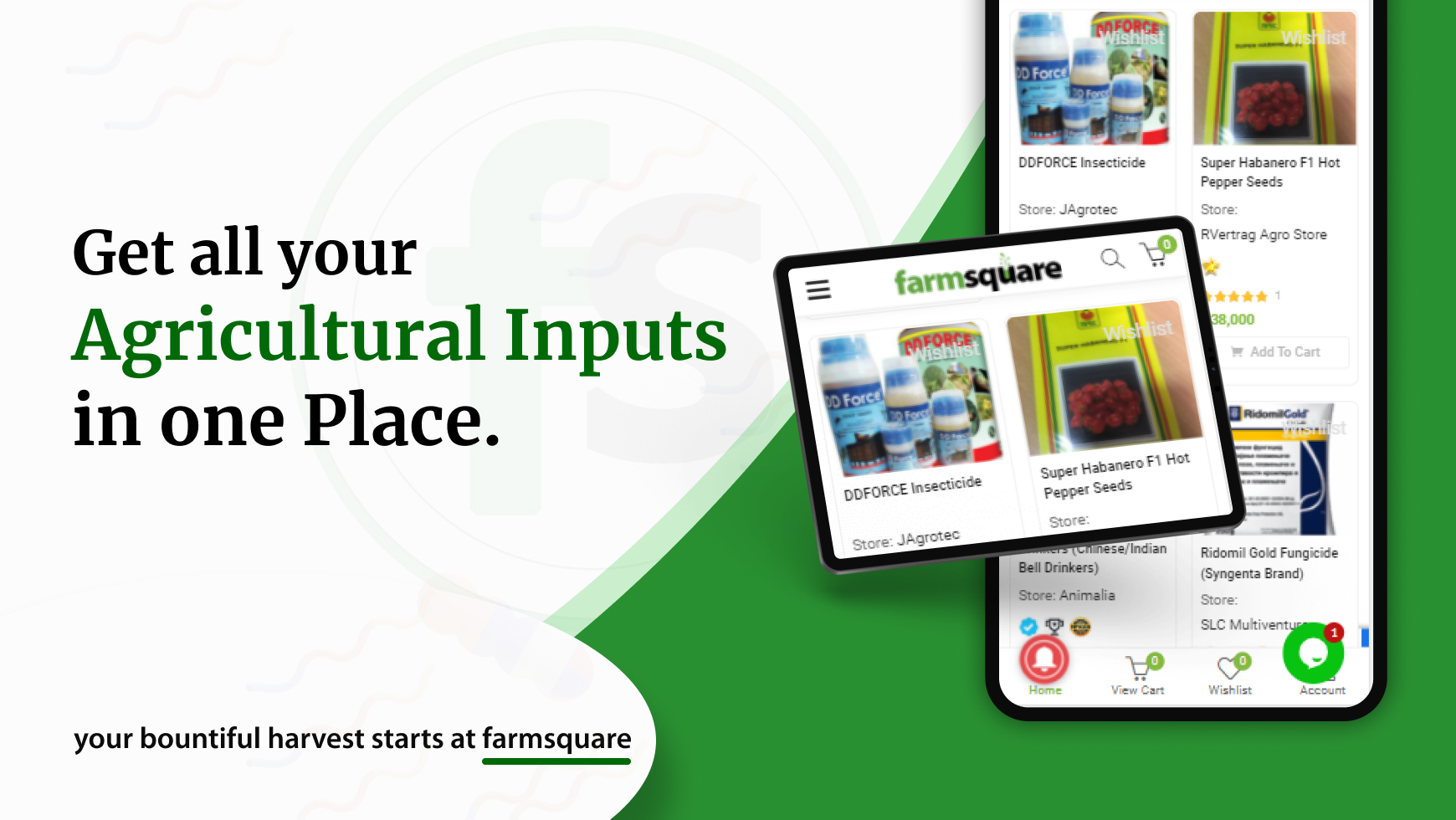- You have no items in your shopping cart
- Subtotal: ₦0
Onyeka Akumah, is the Chief Executive Officer of FarmCrowdy, an agric-tech platform. Recently, his company won the Agro-Innovator of the year at the Nigeria Agriculture Awards 16/17, organised by AgroNigeria.
In this interview, he talks about the perception of Nigerian farmers to digital agriculture.
Tell us about your organisation?
FarmCrowdy is an agric-tech platform that creates middle class Nigerians with small scale farms in order to boost food production. We have is a website that people can visit to buy off maize, rice, cassava, poultry farms and sponsor a farmer who takes that input, goes and does the work on a farm with the assistance of the extension farmer to get the best output where possible and sell this to off-takers and once the sales happens we pay back the farm sponsors.
Do you perform the function of the middleman in the sector?
Our modus operandi is similar to the out grower model, however, we have brought technology into play and we are deploying smart farming techniques. Unlike the out grower model that gives input and allows farmers to just go and do all the work, what we do with the input is the farmer gets money coming from the sponsors, so the sponsor holds us accountable to make sure that the farmer does the work. On our part, we hold the farmers accountable to make sure they deliver what the off-taker wants, so that we can get harvest at the end of the day that the off-taker will buy, and then we will sell and we will pay the sponsors back in return for their money. So it is a bit of a circle.
It is similar to the out grower model, but here you will have technology providing pictures, updates from what is going on in the farms, we also get video updates and we also organise farm visits for sponsors to visit the farms. In addition, because we understand that you need education or you need knowledge in order to improve what the farmers does on the farm, we partner with the likes of Notore, IITA, to be able to train the farmers to understand how they can expand on what they already have in terms of knowledge. It is funny to say that a lot of these farmers have never touched fertilisers before. So, when Notore partnered with us to train them, we were able to help these farmers move from 1.5 tonnes of rice on a particular hectare to getting three tonnes which amazed them. So we are really involved with the farmers.
Does your operations span across all value chains of agriculture?
Presently, we handle sponsorship which is the investment that goes into the farm and the production. The other bit of the value chain that we are getting a bit involved in is the logistics of moving the produce to the off-takers and also the marketing of the value chain to off-takers. However, other parts of the value chain like exports, packaging are areas we intend growing into to expand our scope but for now we are just taking it one step at a time.
How old is FarmCrowdy?
FarmCrowdy is seven months old, we launched September 2016, but with a team of around 16, we have been able to attract over 1000 farmers already. We currently have 500 hectares of maize farm in Jos. We have 280 hectares of rice farms in Edo state, Saboginda-ora. We have leased some hectares of land for cassava farms from the Federal Government, about 85 hectares, but the interesting part is poultry where we have been able to move full circle three times, we currently have 51,000 birds, and we intend doing about a hundred thousand before the end of the year, in terms of broiler birds for poultry and this cuts across farms in Ibadan, Isheri-osun, Ifo, these are locations where we work with farmers.
How would you assess farmers’ perception to digital agriculture?
I think digital agriculture is in two forms. One is where you use technology to improve what happens on the farm in terms of production and you use technology to inform the farmers. In terms of informing the farmers, a lot has happened in getting the farmers to know how to do better. However I am more of the school of introducing farmers to do better not just with the talk but in showing it to them on how to do it on the farm. That is why for us in FarmCrowdy, our education moves a bit off the seminars and lectures to actually applying it on the farms, taking case studies, showing the farmers what they can do with the same farm size, same conditions and getting better output out of what has gone into the ground.
In terms of education, some things have happened, but in terms of what should actually happen with technology around irrigation farming, not much has been done. Irrigation farming is still very expensive to install on the farms and this is what will help us during the dry season, and still continue to produce the required output that will sustain our society. Other examples include, precision farming, using facilities that can report the actual extent of the farm stage per stage. Technology also cuts across the animal sector too. I feel there is need for subsidising the cost, so that these technologies can be accessible to the farmers. Nonetheless, there is room for improvement.
How can the Federal Government enhance digital agriculture in Nigeria?
I think the government should empower the local governments, because they are the ones dealing with the grass roots. The government should empower them to get more people involved in agriculture. The government should create policies that will promote private sector participation. I believe the private sector understand the philosophy of business and how to make profits, they should be encouraged to see agriculture as a very suitable space where they can also get involved and make profits out of the business of agriculture, so whatever it takes the government to attract the private sector into agriculture, it is something that they need to deliberately focus on.
Another thing is making agriculture “sexy” for the younger generation. We should start doing away with perceiving agriculture as something that our fathers in the villages are the ones that should be involved in. They should put plans in place to inform the younger generation about how rewarding agriculture can be to them, so it encourages more of them into it. I feel that the NYSC program should focus a bit more on the agriculture space. Rather than putting people in classrooms to teach and in places that they find seemingly unrewarding, they can be placed in areas to have impact in the society.



